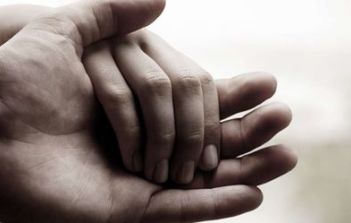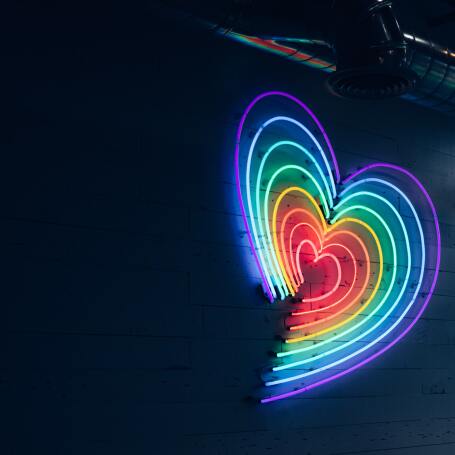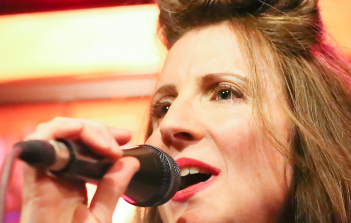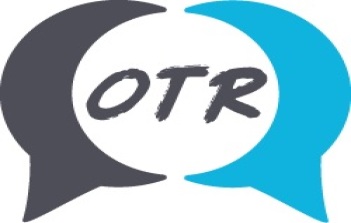
Therapy
Self-Help for Queer Lockdown: Coping Without Community

You were never only a mirror. But I caught glimpses of myself in you; warm slices of colour you handed to me each time we met. I was an unfolding thing then, furled, bent winged; now unbound.
We mirrors are tended, precious breaths.
Did you notice them across the room and were caught off guard by the attraction that unfurled through your body?
Maybe your feelings for a friend grew until 'the best friend I love' became 'the one I love best' and a life together.
Perhaps the wonderings and images that threaded the margins of your dreams wove into a sense of self until you saw and named it for what it was.
We all have different experiences of recognising queerness and it can be a complex and spiralling process. But for many of us, our feelings emerged in relation to another person. Regardless, while living in societies that can be homophobic, transphobic and unsafe for LGBTIAQ+ folx, we may constellate our queerness around our community.
Community can support, hold, validate and reflect. It's the moments when we realise what we thought as a child were 'odd things I did' may actually have been 'queer things I was doing which seemed odd in a het-cis world'.
But what happens in lockdown or for those shielding who can't access the support or validation of local queer spaces in the same way?
Queerness can be experienced in community. After folding ourselves into awkward shapes to try and fit a life that's been expected of us, there's something therapeutic about seeing ourselves in others. Being queer in relation to people or a community, says 'this is OK'. I am OK. It reminds us of who we are, that we are is real.
We are here, we are gay/lesbian/queer/womxn/man/femme/masc enough. Because these are so many messages which say we are not.
This has been particularly tricky during lockdown and now Pride month. For many LGBTIAQ+ folx, Pride is a space to refuel and re-establish access to resources that allow us to keep navigating difficult situations in daily life.
The queer community can mirror something in us and reflect what's beautiful about us that we can't always see. But queerness also exists within us, apart from any other person. We don't just have queer relationships, we are forever in a queer relationship with ourselves.
If we haven't tapped into this before, and experienced our queerness in relation to external experiences or spaces, here are some ways to reflect on our own relationship to queerness that may need support during a time of isolation.
Queer Self Reflective Prompts
You may want to reflect on these prompts in a journal, in the notes or voice app of your phone or while tending your body. Notice, as much as you can. what thoughts/feelings or images emerge.
- Where does Queerness live in my body today?
- What's my favourite thing about my queerness?
- What are 5 things queerness has brought into my life?
- Who is my favourite queer poet? What's my favourite poem?
- Does my queerness have a colour or shape right now?
- How does that feel?
You may find you want to keep an emblem of this work with you to support your queer self-relationship right now. Often my clients have used a photo on their phone, or a piece of jewellery they always wear, as something that symbolises their queerness or something they want to keep in focus, like comfort or the present.
Take care of yourself and if something feels too tender, it's ok to step back from it. You may want to bring it to your therapist and work with it in a held space.
If something feels too much, then it can be helpful to come back to the present if that’s possible and safe. Things like counting all the blue objects in a room, or the ceiling tiles or floor tiles, or noticing where we are now and what’s present in this situation for all our senses, can help bring us back. So can things like gripping the chair we are sitting on, flexing our feet/legs or hands, if that’s possible. Rocking a little or wiggling bottom on the chair can be very grounding.
If you start to lose track of this supportive aspect of yourself, you focus on it – it’s very discreet, just looking at your phone, you can have an ‘anchor album’ of photos on phone – and looking at the picture, thinking about the senses, the love for the image. It’s an anchor if you get a little lost internally, to help bring you back.
We work longer term on these struggles at Talk to the Rainbow, but I hope these reflections are helpful during our lockdown Pride month.
Grace Quantock is a writer and psychotherapeutic counsellor. She writes about the intersection between social justice, marginalised identities and the creative arts. Her work has been featured in The Guardian, New York Magazine, The Huffington Post and The Hay Literary Festival. She is working on a book about marginalised bodies in a polarised world. Grace also works as a psychotherapeutic counsellor for Talk to the Rainbow, the centre for LGBTQ+ therapy in the South West.

